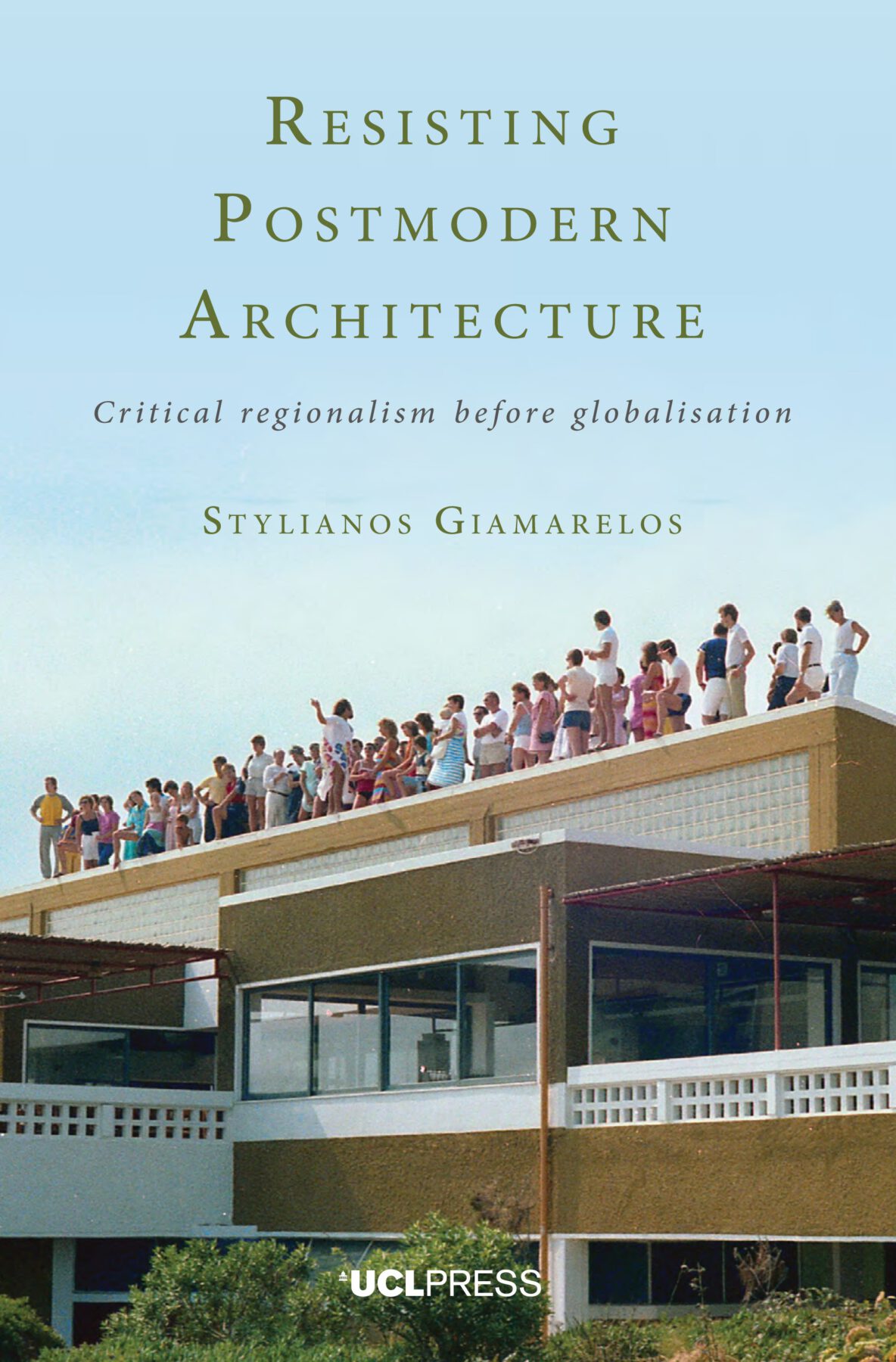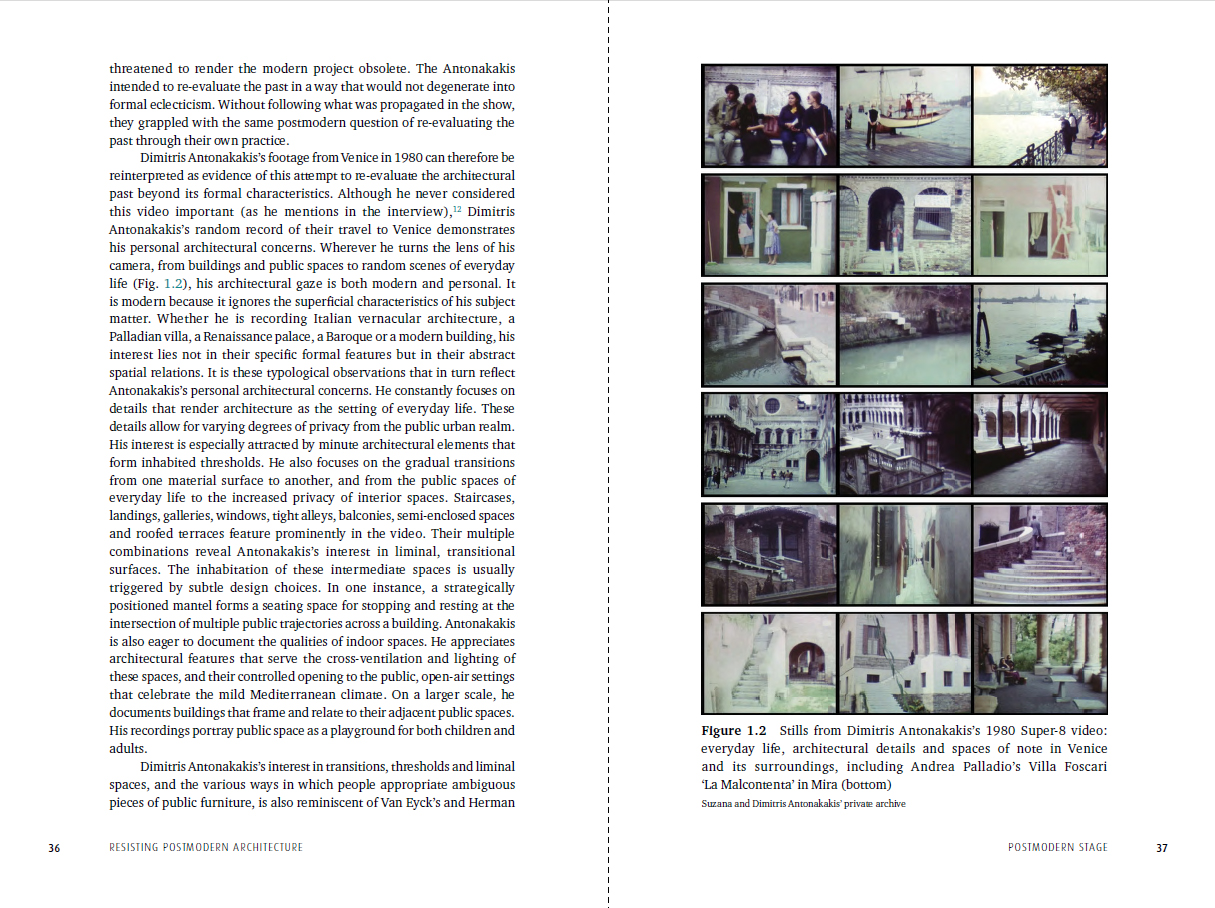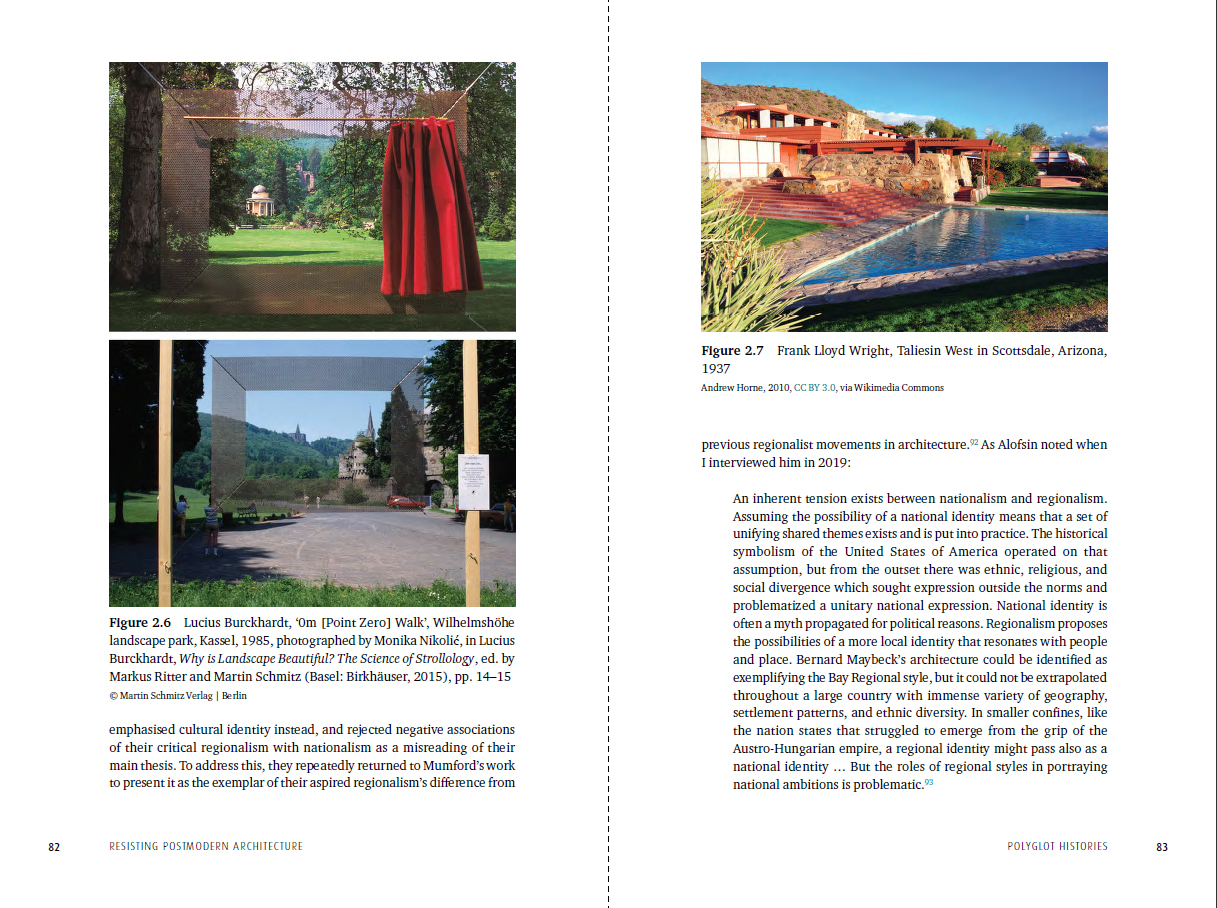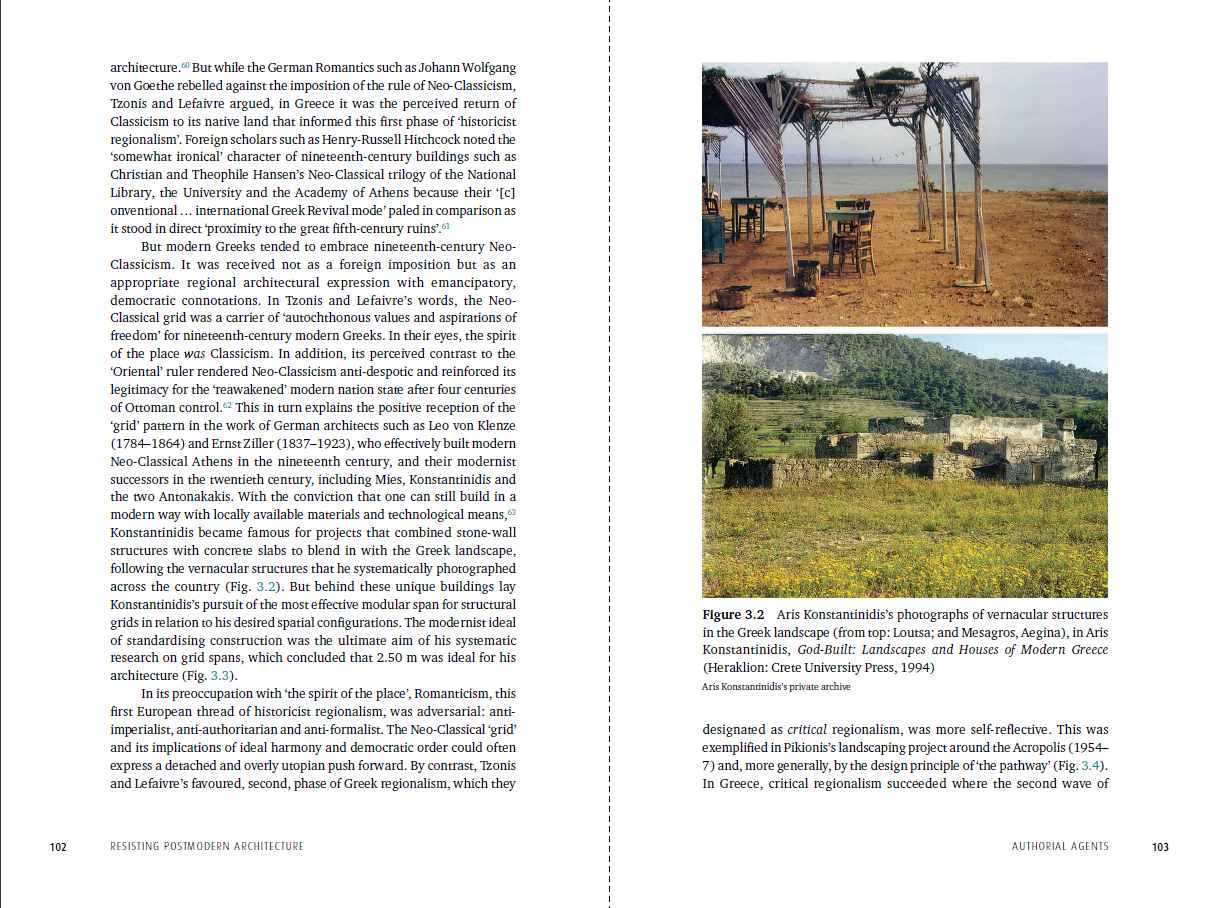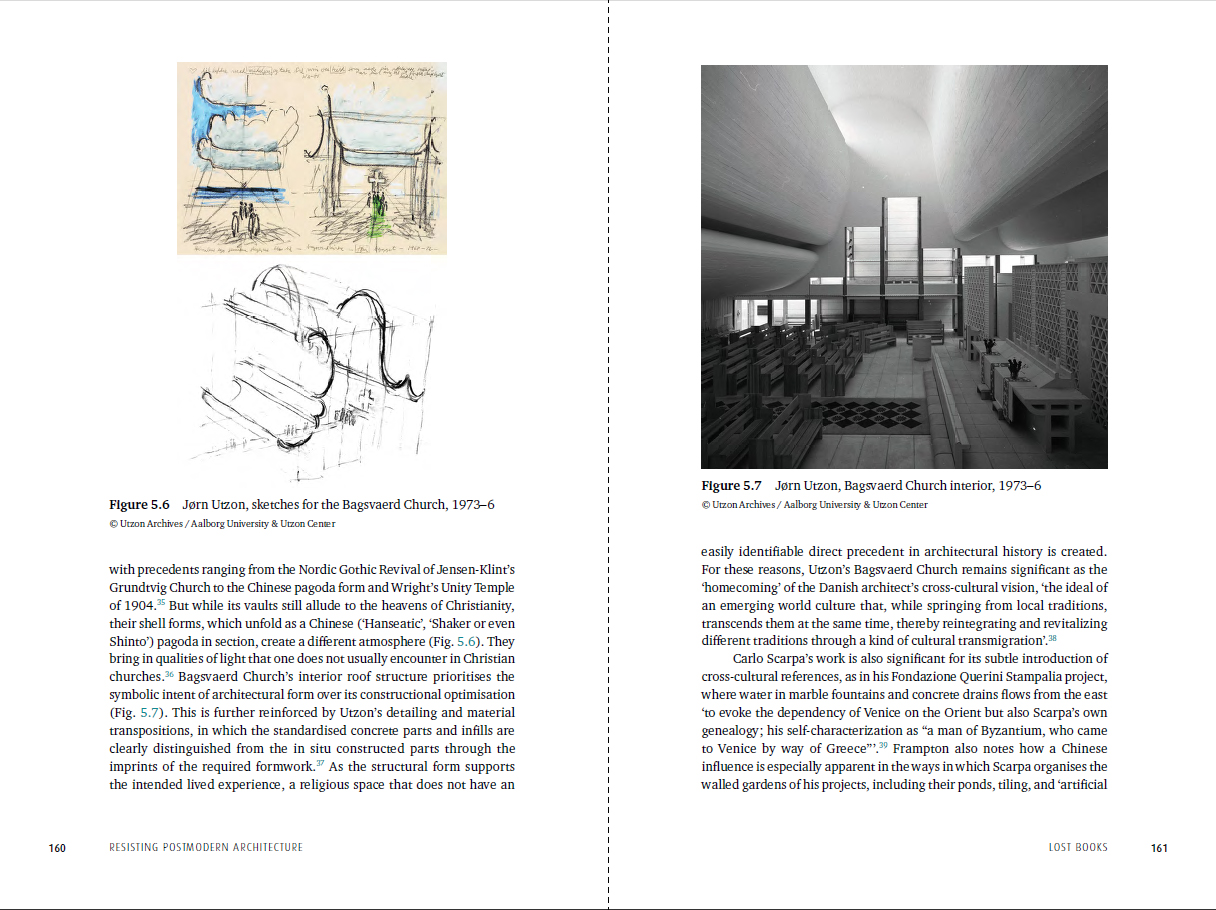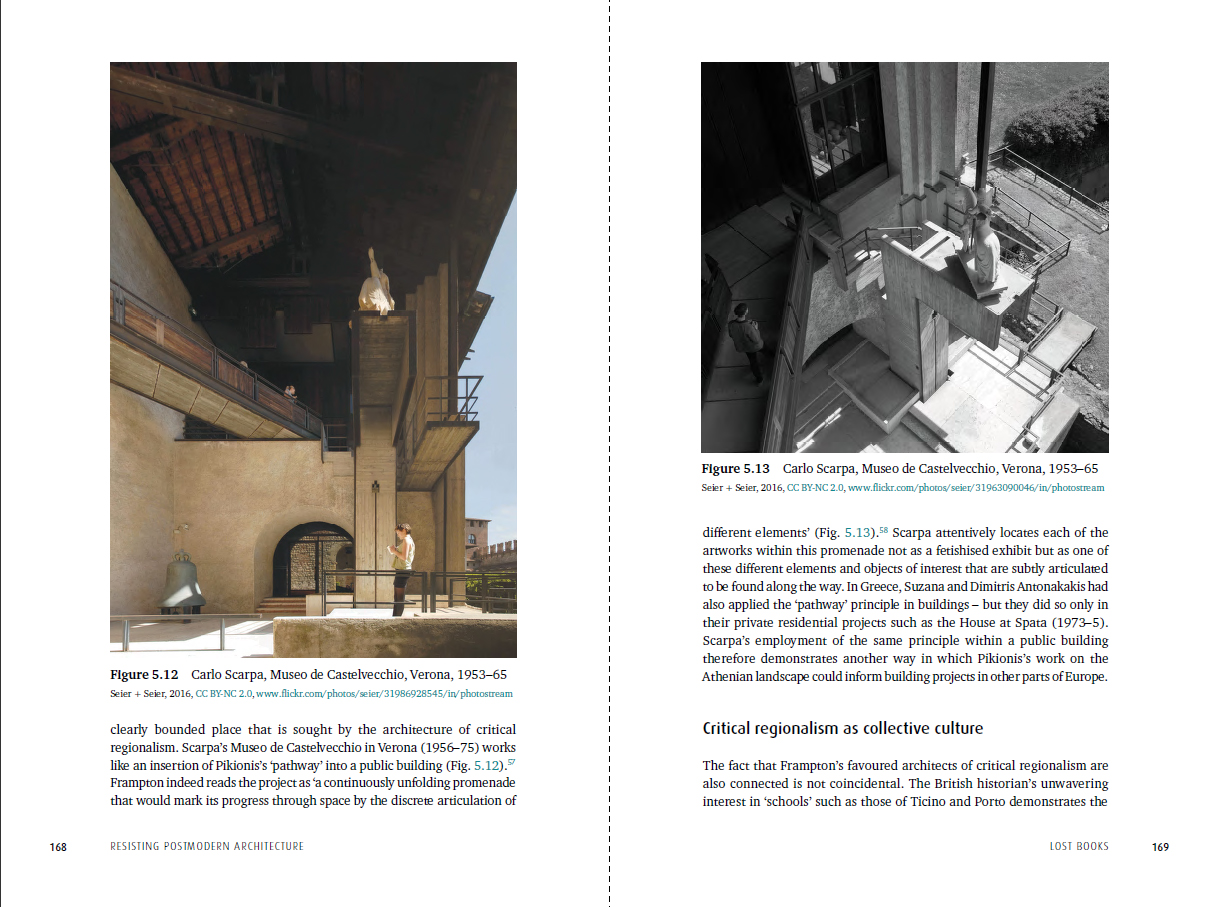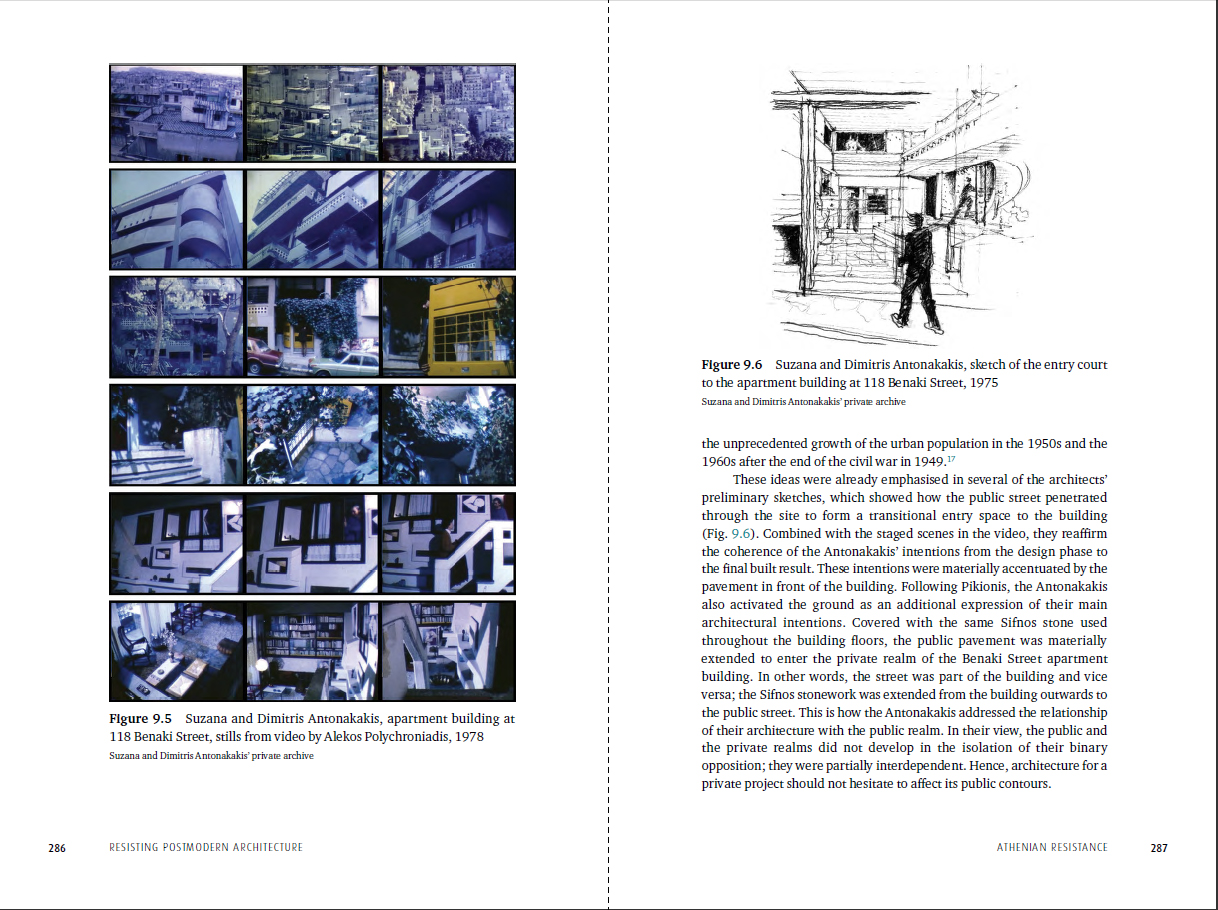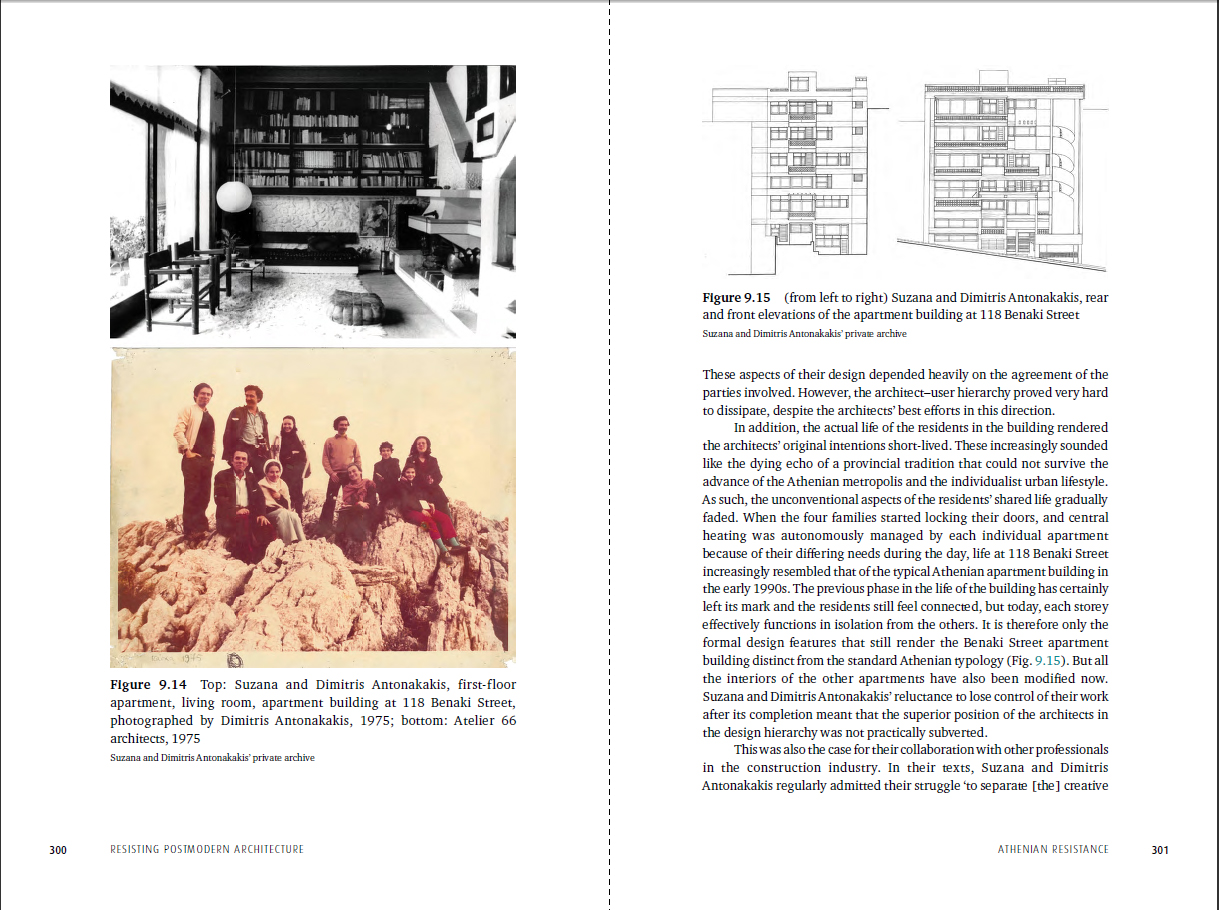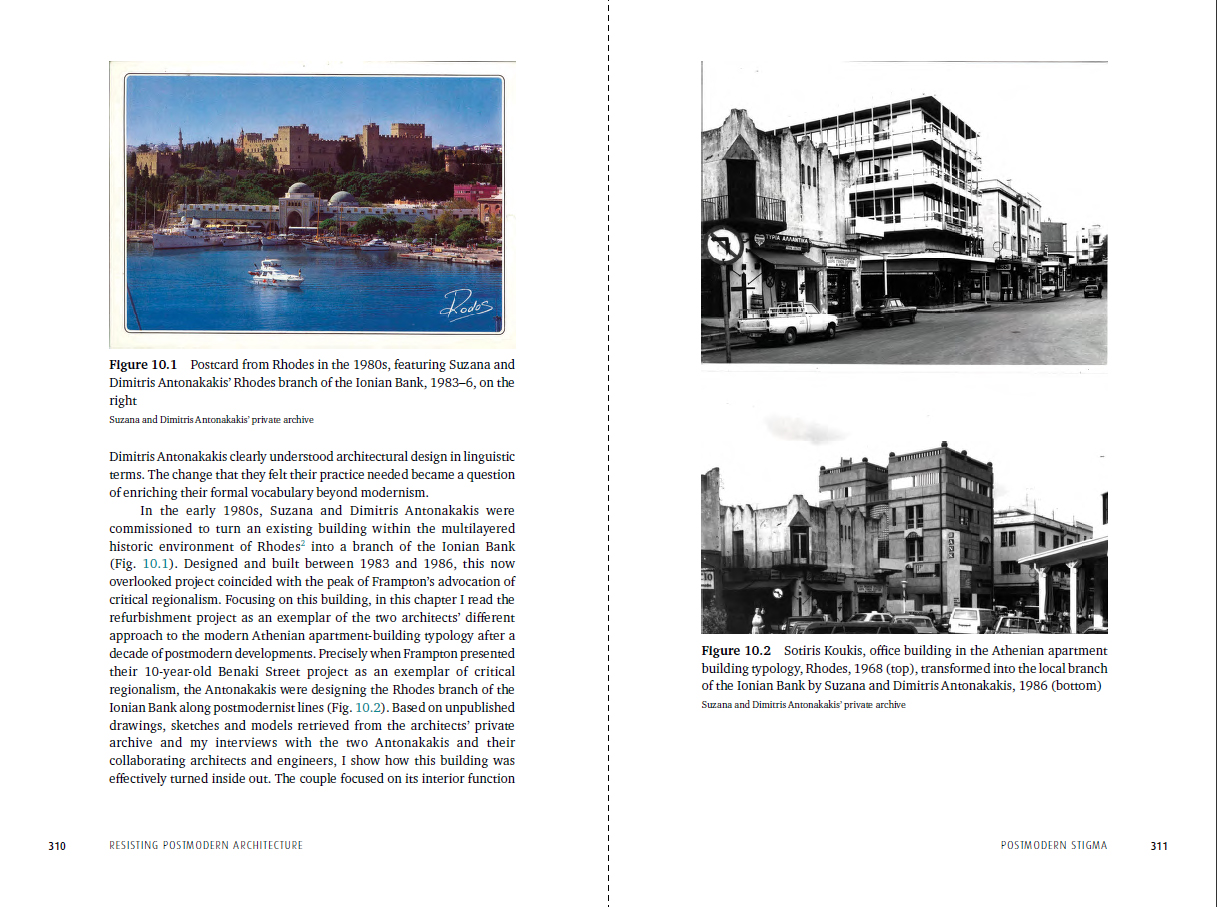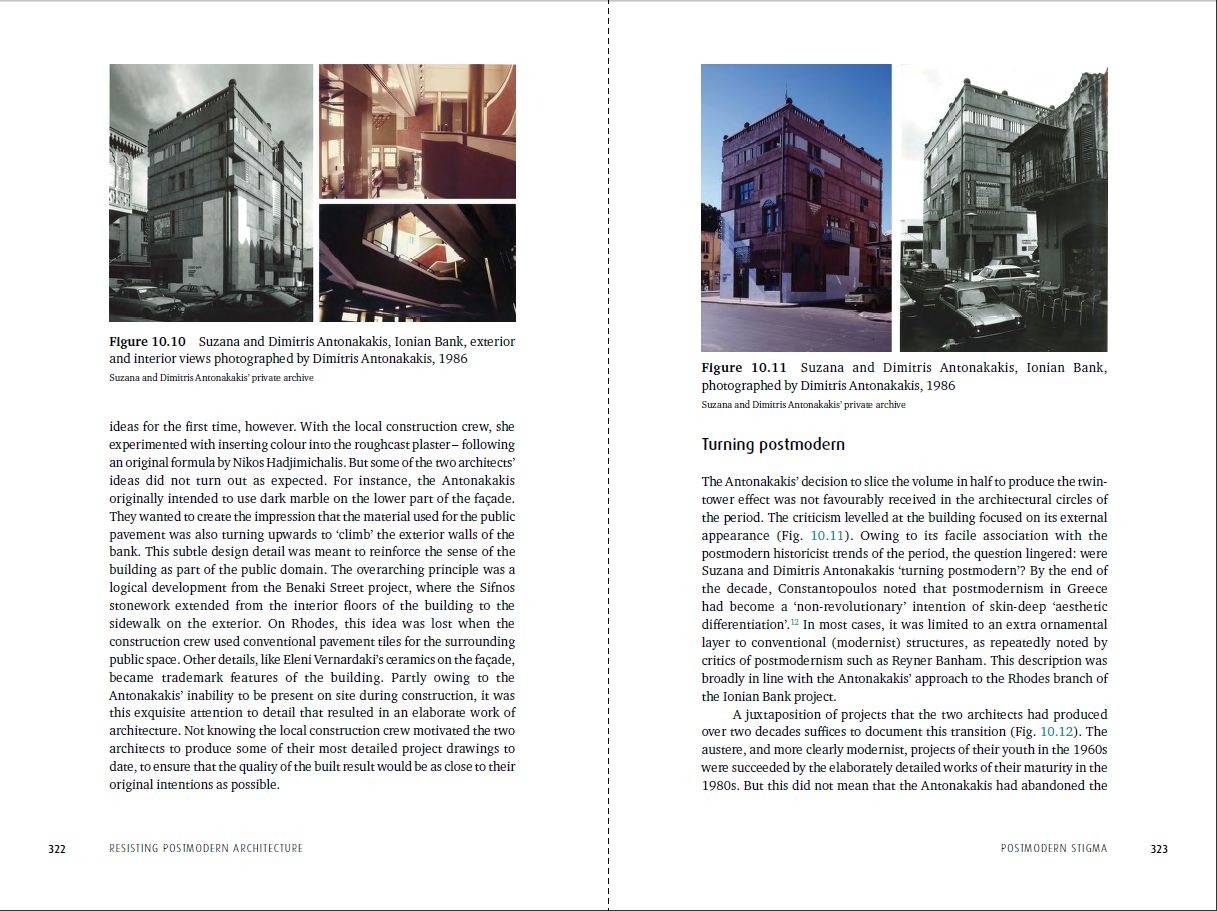A critical reappraisal of one of the most popular architectural theories of the recent past on its fortieth anniversary.
-text by the author
Since its first appearance in 1981, critical regionalism has enjoyed a celebrated worldwide reception as an architectural theory that defends the cultural identity of a place resisting the homogenizing onslaught of globalization. Its principles of acknowledging the climate, history, materials, culture, and topography of a specific place are integrated into architects’ education across the globe. But at the same time, the richer cross-cultural history of critical regionalism has frequently been reduced to schematic juxtapositions of “the global” with “the local.”
This book uses more than fifty interviews and previously unpublished archival material from six countries to resituate critical regionalism within the wider framework of debates around postmodern architecture, the diverse contexts from which it emerged, and the cultural media complex that conditioned its reception. In so doing, it explores the intersection of three areas of growing historical and theoretical interest—postmodernism, critical regionalism, and globalization—and shows how the “periphery” was not just a passive recipient, but also an active generator of architectural theory and practice.
Praise for Resisting Postmodern Architecture
‘If architectural historians embrace the seven points of Giamarelos’s manifesto remains to be seen, but the value of the history the book tells is abundantly clear, given the lack of a history of critical regionalism before it.’
– A Weekly Dose of Architecture Books
‘this in-depth scholarly enquiry is not merely a history of postmodernism, but also an alternative history of modern Greek architecture, a commentary on architecture’s media production, and a study of operative criticism.’
‘Reading Stelios Giamarelos’s book has been inspiring and informative. His book covers the last 40 years. In that time there have been many significant developments and innovations in architectural history, addressing, for example, architectural authorship and the construction site. But the building itself is noticeably absent from some contemporary architectural histories. In contrast, nuanced appreciation and critical analysis of specific buildings is crucial to Giamarelos’ argument. His choice is apt because he focuses on the Greek architects Suzana and Dimitris Antonakakis, to whom the term ‘critical regionalism’ was first applied by Tzonis and Lefaivre in 1981. Giamarelos’s careful study of specific projects draws forth many wonderfully rich and subtle insights. He offers a fuller picture of the Antonakakis’ work, using their denial of their later projects to his advantage. His analysis also helps to explain the ways that architects conceive their designs. Although his book is entitled Resisting Postmodern Architecture, Giamarelos sidesteps stylistic classifications by searching for the cultural, social, and political contexts that underpin them. In the conclusion, he intriguingly becomes an advocate for a new critical regionalism in our current context. Rather than a discreet historical period he recognises that critical regionalism can be understood as incomplete and unfinished. Revisiting critical regionalism, he proposes that its present-day reinterpretation needs to discard its Western-centric focus. Identifying critical regionalism as an early example of environmental sustainability in mainstream architectural discourse, Giamarelos frames his book within the context of the current climate emergency. Although they do not use the term, a critical regionalist approach to climate change is seen in the work of the climate researchers who authored the influential Hartwell Paper in 2010, including Mike Hulme, Gwyn Prins and Steve Rayner. This approach is very much in the spirit of the critical regionalism Giamarelos so lucidly advocates.’
– Jonathan Hill, Professor of Architecture and Visual Theory, The Bartlett School of Architecture, UCL
‘Giamarelos reflects upon why Frampton’s critical regionalism continues to endure, particularly as a template for an engaged practice on the part of architects around the world today. He points to aspects of Frampton’s ideas, such as a respect for nature, local landscapes and site conditions, which easily segue to the pressing contemporary concerns regarding sustainability and climate change. For these reasons, Resisting Postmodern Architecture is a worthy, relevant and innovative work of scholarship.’
– Mary Pepchinski, former professor of architectural theory at the Technical University Dresden
Facts & Credits
Book title: Resisting Postmodern Architecture: Critical Regionalism before Globalisation
Author: Stylianos Giamarelos
Cover Photo credit: Courtesy of Lucy and Giorgos Triantafyllou (Atelier 66 architects’ 1982 visit to their Lyttos Hotel project in Anissara, Crete)
Publisher: UCL Press
Cover Design: Hayes Design
READ ALSO: Παρουσίαση του βιβλίου «Αρχιτεκτονική ποιητική | Κείμενα 1959-2019» της Σουζάνας Αντωνακάκη - Πανεπιστημιακές εκδόσεις Κρήτης
